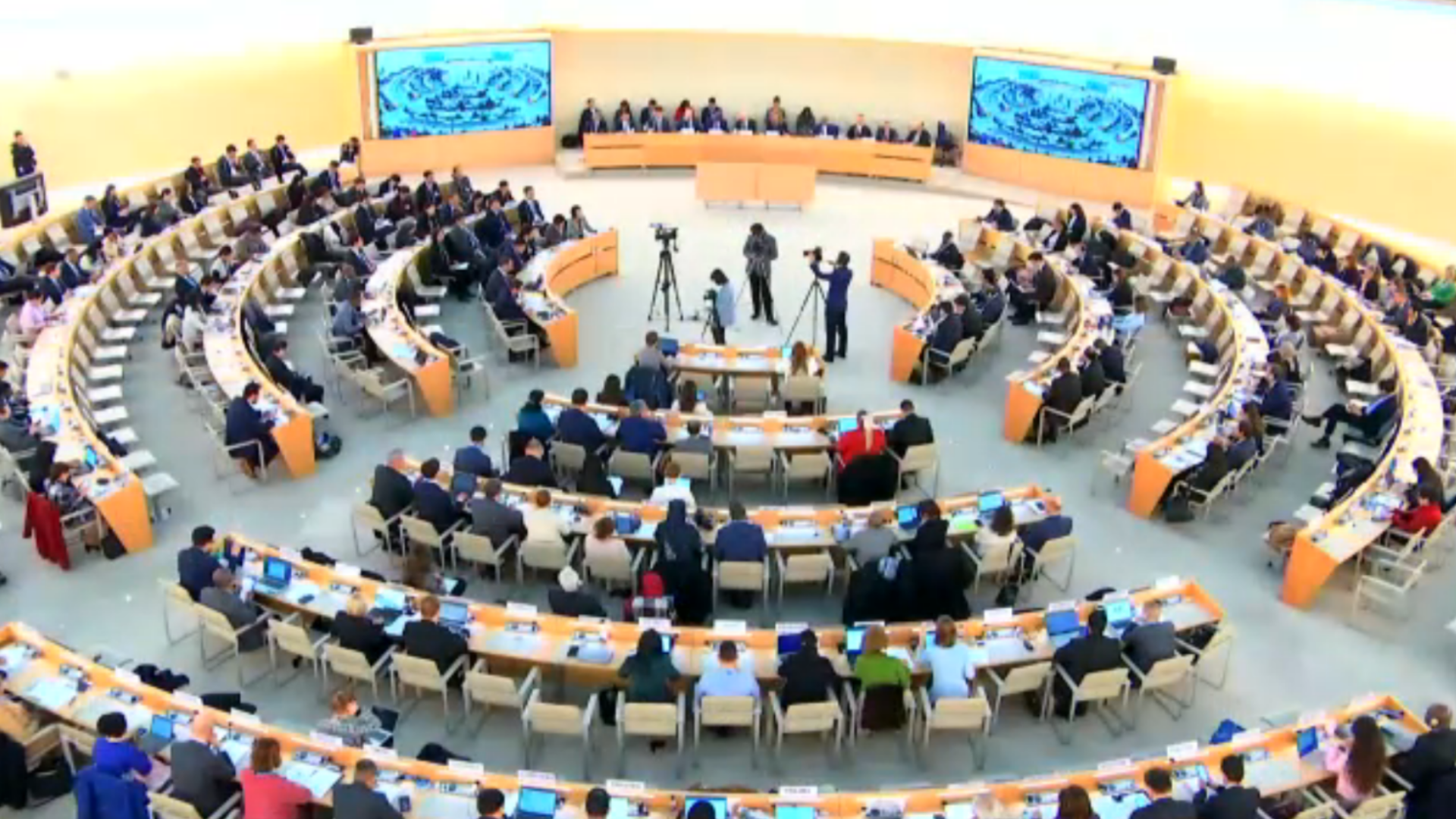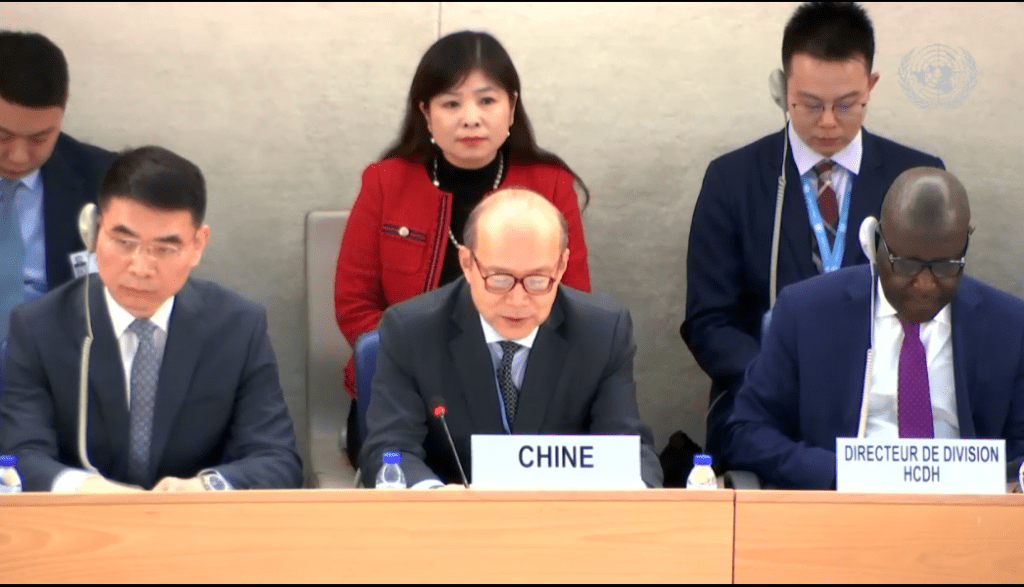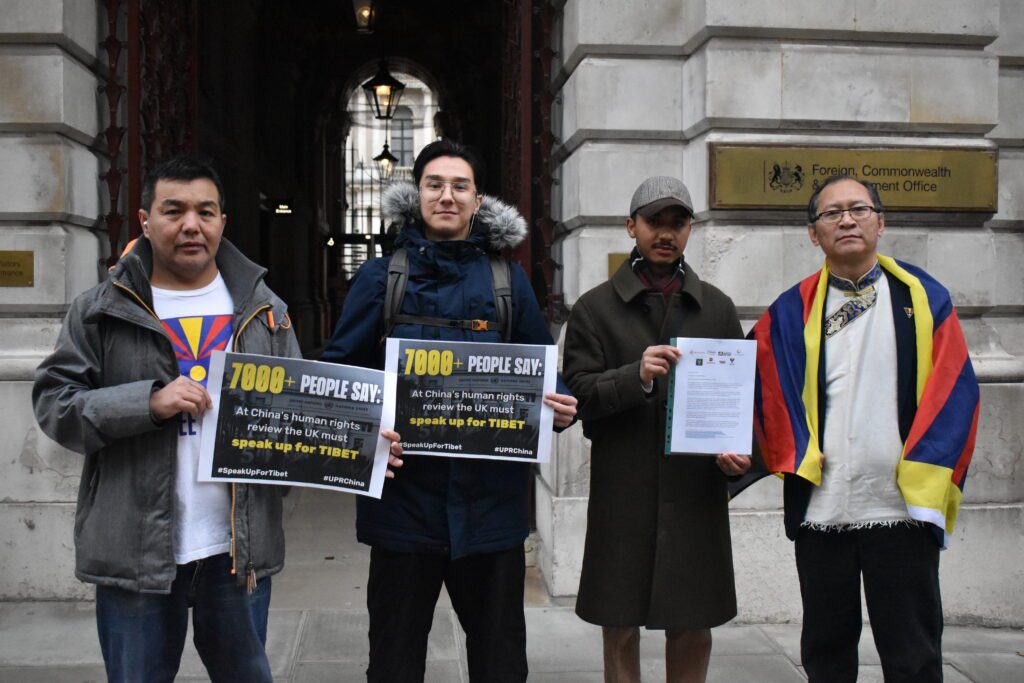
Sharp surge in support for Tibetan rights at UN
Breakthrough at the UN sees an unprecedented 21 countries confront the Chinese government over its human rights record in Tibet
Years of advocacy and human rights monitoring paid off at the United Nations today as a record number of countries confronted the Chinese government over its policies in Tibet.
The setting was China’s Universal Periodic Review (UPR) in Geneva. During a three-hour session, China’s human rights record was scrutinised by numerous governments.
21 governments directly mentioned concerns over human rights in Tibet, resulting in a total of 25 recommendations.
Among the recommendations issued to the Chinese delegation were that it grant United Nations observers full access to Tibet, that it end restrictions on the Tibetan language, harassment of human rights defenders and interference with Tibetans’ cultural and religious rights, and that it abolish its residential boarding school system, in which an estimated one million Tibetan have been separated from their families and communities.

Members of the Chinese delegation defend China’s human rights record during the UPR
This is more than double the 11 recommendations on Tibet issued by nine states at China’s last UPR in 2018, and a massive increase on the four states that raised Tibet at China’s first UPR in 2009.
Among the countries raising human rights in Tibet for the first time were Estonia, Ireland, Japan, Lithuania, Montenegro and Norway.
As part of the UPR process, the Chinese government will review these recommendations and determine whether or not it will accept them. Those recommendations accepted by the Chinese government are then supposed to be implemented in advance of China’s next UPR in 2029. The Chinese government is expected to be defensive, with members of its delegation using their speaking time during the session today to accuse governments critical of its human rights record as being unfactual and prejudiced.

Members of Free Tibet, Tibetan Community in Britain and the Voluntary Tibetan Advocacy Group drop off the petition at the Foreign Office
Regardless of whether China voluntarily complies or not, the large rise in recommendations was noted by the international delegation of Tibetans and Tibet advocates that attended the session. This delegation included Dr Gyal Lo, the world’s leading expert on the residential boarding school system in Tibet, which has attracted international attention from governments and UN human rights experts.
The increase in governments issuing recommendations about Tibet also represents a success for Tibet groups and Tibet supporters, who lobbied international governments to raise Tibet at the UPR.
Last week, Tibet groups including Free Tibet submitted a petition signed by over 7,000 people, demanding that Tibet be raised, while over the past year, they have met with Foreign Ministries, embassies and UN missions to present them with evidence of human rights violations in Tibet.
Free Tibet and Tibet Watch’s joint submission to the UPR is available here.
An earlier version of this article stated that 20 countries had made 24 recommendations. Further checks have found it was 21 countries and 25 recommendations. This article has also been amended to note that Norway issued a recommendation on Tibet for the first time.
The full list of the 21 countries issued recommendations on Tibet or raised general concerns about the human rights situation in Tibet is below:
1. Australia (1 recommendation)
“Consistent with the OHCHR and other treaty body reports on Xinjiang and Tibet, repeal legislation and cease practises which discriminate against Tibetans and Uyghurs on the basis of race or religion. Cease arbitrary detention, coercive labour transfer, and family separation programs, and end restrictions on movement and on rights to enjoy their own culture and language.”
2. Austria (2)
“Repeal policies to forcibly assimilate Tibetan and Uyghur people culturally, religiously and linguistically.”
“Abolish Chinese language boarding school systems for Tibetans and Uyghur pupils and ensure the right to education without discrimination to family life and cultural rights.”
3. Belgium (1, has mentioned Tibet before but first time making a recommendation)
“Respond positively to outstanding requests for visits of special procedures, including to Tibet and Xinjiang, in particular those working on slavery, counterterrorism, religion or belief, and business and human rights.”
4. Canada (2)
“End all coercive measures imposed on Uyghurs, Tibetans and other ethnic minorities including forced labour, coercive labour transfer, forced sterilisations and mandatory residential schools.”
“Grant the UN including the OHCHR and Special Procedures full and unfettered access to all regions of China including Tibet and Xinjiang. Canada also notes with concern the increasing extra-territorial repression of human rights defenders.”
5. Czech Republic (1)
“End the criminalisation of religious and peaceful expression by ethnic and ethno-religious groups including Muslim Uyghurs and Buddhist Tibetans and Mongolians under the pretext of protecting state security.”
6. Denmark (1)
“Immediately abolish the coercive residential school system imposed on Tibetan children; ensure persons belonging to minorities can fully enjoy their cultural rights and use their own language.”
7. Estonia (1, new State to raise Tibet)
“Respect and ensure the rights of ethnic and religious minorities, in particular in Xinjiang and Tibet.”
8. France (1)
“Ensure protection of the freedom of religion particularly for Uyghurs and Tibetans.”
9. Germany (2)
“Respect the rights of persons belonging to ethnic and religious minorities including Xinjiang and Tibet.”
“Abolish all coercive practices and labor transfer programs and boarding schools.”
10. Japan (1, new State to raise Tibet)
“Protect the rights of minorities including Tibetans and Uyghurs, including their rights to enjoy their cultural and religious practice as recommended by CESCR.”
11. Lithuania (2, new State to raise Tibet)
“Ensure that children in all regions, including Tibetan children, are guaranteed the right to use their language in every aspect of their schooling.”
“Guarantee the rights of all citizens to opinion and expression without fear of reprisals and censorship in all regions including Hong Kong, Tibet and others.”
12. Netherlands (1)
“Abolish the de facto coercive residential boarding and preschool system in Tibet and guarantee access to Tibetan language education.”
13. New Zealand (1)
“Implement the 2023 recommendations by CESCR and CEDAW recommendations on the right to thought, conscience and religion for ethnic and religious minorities including ethnic Uyghurs and Tibetans.”
14. Norway (1, new State to raise Tibet)
“Allow unhindered access to UN special rapporteurs and independent experts to evaluate persistent reports of violations of human rights in China, including in Xinjiang and Tibet.”
15. Poland (1)
“Respect the rights to freedom of religion, or belief, opinion, and expression, peaceful assembly and culture, including for Tibetans, Uyghurs and other minorities.”
16. Sweden (1)
“Take urgent steps to fully respect the rights of ethnic and religious minorities esp in Xinjiang and Tibet.”
17. Switzerland (1)
“Bolster the protection of Tibetan culture and language in the compulsory education system and authorise the creation of private Tibetan schools.”
18. United Kingdom (1)
“Cease the persecution and arbitrary detention of Uyghurs and Tibetans and allow genuine freedom of religion or belief and cultural expression without fear of surveillance, torture, forced labour or sexual violence, and implement OHCHR recommendations on Xinjiang.”
19. United States of America (3)
“Release all arbitrarily detained individuals, many of whom were named by the UN working group, cease harassment, surveillance and threats against individuals abroad and in China including Xinjiang, Tibet and Hong Kong.”
“Cease discrimination against individuals’, culture, language, religion or belief, and end forcible assimilation policies including boarding schools in Tibet and Xinjiang.”
“Permit the UN unhindered and meaningful access particularly in Xinjiang and Tibet.”
20. Ireland (comment, no formal recommendation, new State to raise Tibet)
“Ireland is deeply concerned about the continued repression of civil society in China, including harassment of human rights defenders, restrictions on freedom of expression, including in Hong Kong and the treatment of ethnic and religious groups, including in Xinjiang and Tibet.”
21. Montenegro (comment, no formal recommendation, new State to raise Tibet)
“[S]erious human rights violations have been committed in the context of the government’s strategies to fight terrorism and extremism, in particular in Xinjiang and Tibet.”

